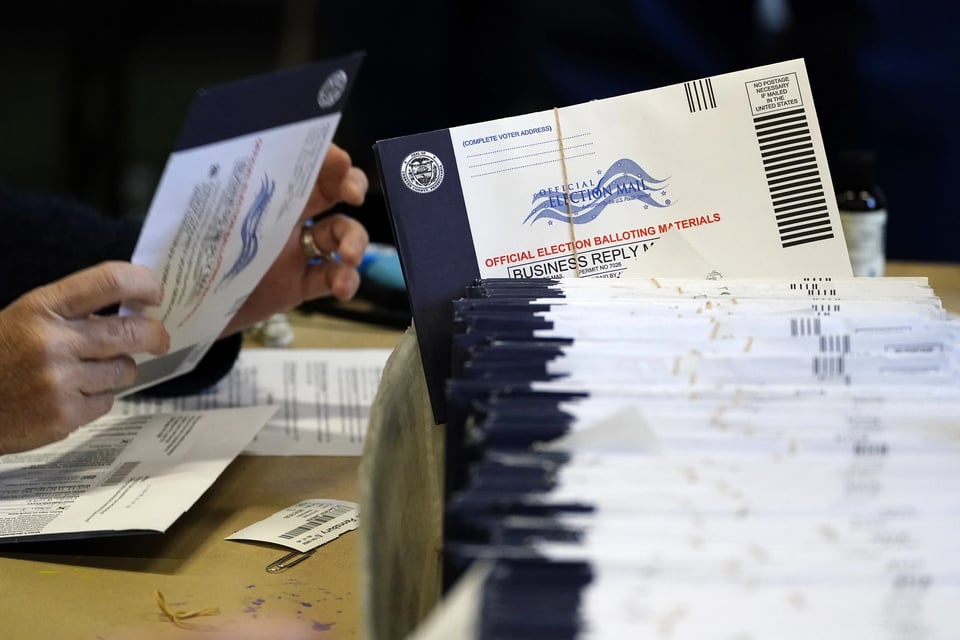Tuesday, August 19, 2025. Annette’s Roundup for Democracy.
To Trump’s failed “summit” in Alaska, Lavrov wore a grey “CCCP” sweatshirt under a puffer vest.
You remember Lavrov, Putin‘s foreign minister and right hand man? Trump met him in the White House in 2017 and told him about an Israeli counterterrorism operation during the meeting, potentially jeopardizing the source of that intelligence. The world shouted!


No US media were allowed to cover the 2017 meeting. The photographs above ☝️ were by a Russian Photographer.
There’s been much talk in the American and European press of Putin‘s dream of a glorious return to imperial Russia – the Russia of Catherine the Great.
But earlier in the short day in Alaska, Lavrov made clear another of his and the Russian leader’s dreams - a return to what they undoubtedly see as the “glory” of the USSR. You can be sure Zelenskyy got the point.

In Russia’s Cyrillic alphabet, CCCP stands for the USSR.
To Trump’s second “summit,” Zelenskyy wore a suit.

He also brought a few friends.



Nothing much else to report.
A new name to learn in the Governor’s race in Iowa.
Rob Sand, a Democratic contender for Iowa’s governor, offers a potential template for others in his party on how to compete in red-state America.

Rob Sand could almost pass for a Republican: He frequently quotes the Bible, owns two SIG Sauer handguns, goes deer hunting each fall and asks audiences to sing a few verses of “America the Beautiful” at the start of campaign events.”
“The only Democrat elected to statewide office in Iowa, Sand is trying to jump to the governor’s mansion from his current state auditor post. In the process, he is offering a potential template for others in his party on how to compete in red-state America.”
Iowa Christian conservative leader Bob Vander Plaats recently warned Republicans that Sand is a “very real opponent” to be taken seriously. “Churchgoer, gun-toter, state auditor, taxpayers’ watchdog. Sounds a little bit like us, right?” Vander Plaats said, adding that Sand will have plenty of money behind him, in part, because of his wealthy wife and in-laws.
Sand’s 2026 campaign is a long-shot in a state President Trump won by 13 percentage points in 2024. Republican Gov. Kim Reynolds, who has held the office since 2017, isn’t seeking re-election and that means for the first time since 2006 there will be no incumbent.
Voters are tired of partisan division, Sand said during an interview at the Iowa State Fair. “In a two-choice system, if you can convince people that the other side is out to destroy your way of life, or evil, then you don’t have to do the hard work of listening to people and crafting solutions and solving problems,” he said. “You can get re-elected anyway.”
On numerous occasions, Sand mentioned his Lutheran faith. “Jesus is for the little guy. Jesus is for the outcast. And the Democratic Party is for the little guy,” he said.
His campaign’s dominant color for signs and T-shirts is green, not blue. Those items often include phrases such as “governor for all.”

Sand shaking hands with voters at the Iowa State Fair.
Iowa carries extra political heft because it was where the presidential nomination race started for both parties, before the Democratic National Committee in 2023 demoted the state because of a dislike for its caucus process and its tendency to increasingly support Republicans.
That demotion puts added pressure on Sand, 43 years old, a former assistant Iowa attorney general and chief public corruption prosecutor. Iowa Democrats desperately want to get back into the mix for early presidential nominating contests in 2028 but would need to at least win in their own state to do so.
Iowa is one of several Midwest states with hotly contested 2026 governor’s races. Republicans are hopeful they can capture governorships held by Democrats in Kansas as well as Michigan and Wisconsin, both presidential battlegrounds.
The decision by Reynolds not to run again has brought a flurry of GOP entrants ahead of a June primary, including U.S. Rep. Randy Feenstra, state Sen. Mike Bousselot, state Rep. Eddie Andrews and former state Rep. Brad Sherman.

Republican Governor Kim Reynolds.
The nonpartisan Cook Political Report moved the contest from “solid Republican” to “lean Republican” when Sand entered the race, a rare two-category move. It called the Democratic front-runner “easily the strongest contender his party could have recruited.”
Sand pointed to Democratic governors from Kansas and Kentucky as proof that he has a chance. Laura Kelly has twice been elected in Kansas where Trump won by 16 percentage points last year, while Andy Beshear has twice won in Kentucky where Trump won by 30 points.
Asked if Beshear—a likely 2028 Democratic presidential candidate—is a role model, Sand said: “There’s a lot of similarities in my approach.”
Sand also highlighted Iowa’s presidential-election results to suggest that the state, in its recent history, doesn’t like career politicians.
“When we went for Barack Obama twice and then Donald Trump three times, it’s not because Iowa changed, it is because those two guys were the same: They were people who said ‘I’m going to do things differently,’” Sand said.
Reynolds, in an interview, said that her party would keep the governorship and that Iowa has taken a likely permanent turn to the GOP that includes a major voter-registration advantage. She did little to hide her dislike of Sand.
“He’s been the most partisan auditor I think we have had in our state’s history,” Reynolds said. “He’s opposed to anything I do.”
Former Iowa Republican Gov. Terry Branstad called Sand a “phony” and a “liberal” in an interview. He pointed to Sand working for a progressive candidate in 2006.
Sand responded that he worked for that candidate immediately after college, after applying to three campaigns for governor and going with the first one that offered him a job.
While Sand sells himself as independent-minded, he backs several positions traditionally supported by Democrats, including abortion rights. He said he thinks his party is “better on conservation issues” and opposes Trump’s push to take away wind-energy subsidies.
Sand doesn’t think people designated male at birth should play women’s sports, a position that could help neutralize a favored line of attack that Republicans have successfully used to paint Democrats as extreme. He supports civil rights for transgender people in employment and housing.
Sand does 100 town halls each year for his current job. He has started to ask people at his campaign events to raise their hands to indicate their political affiliation, before asking them to sing a few bars of “America the Beautiful” with him. He picked the song, he said, because “everybody knows the words,” and it doesn’t have too many high or low notes.
“The point of it is unity,” he said.

As Sand crisscrossed the fairgrounds, several people expressed support.
“I want you as our next governor,” Kent Berryman told him. The 67-year-old retired farmer from southeast Iowa later said he is a former Democrat who left the party and voted for Trump in 2016 because he felt his previous party “overplayed equity and inclusion.”
Barb Meister, a 66-year-old Republican from northwest Iowa, said she would vote for Sand because “he tries to meet people in the middle.”
Sand said most voters want more cooperation in politics. “Our founders would be embarrassed by the fact that we don’t talk to each other,” he said.
Near the end of his fair visit, Sand stopped at a local radio station’s temporary studio to talk with a conservative host. “Blessed are the peacemakers,” he said when asked why he made that stop. (Wall Street Journal).
Republicans failed to end discussions of the Epstein Files.
The Times reports - “Back in their districts, lawmakers have continued to face questions about the Epstein investigation from their constituents.”
Then this happened in the Congress yesterday. 👇
Will something come of it? Your guess is as good as mine.
Top Republican Says Justice Dept. Will Begin Sharing Epstein Files.
The chairman of the House Oversight Committee said the department would miss a Tuesday deadline his panel set in a subpoena but would begin sharing some records on Friday.

Representative James R. Comer, the Kentucky Republican who leads the Oversight Committee, at the Capitol in Washington on Monday for a deposition with former Attorney General Bill Barr
The chairman of the House’s chief investigative committee said on Monday that the Justice Department would miss his panel’s Tuesday subpoena deadline for providing files related to the accused sex trafficker Jeffrey Epstein but would begin sharing some records starting Friday.
Representative James R. Comer, the Kentucky Republican who leads the Oversight Committee, issued the subpoena to Attorney General Pam Bondi this month after a few G.O.P. lawmakers on the panel teamed with Democrats to force his hand. It set an Aug. 19 deadline for the Justice Department to give the committee all of its files related to Mr. Epstein, the disgraced financier who died in federal prison while awaiting trial in 2019.
But ahead of his announcement on Monday, Mr. Comer signaled to reporters at the Capitol that he did not expect the Justice Department to meet the deadline, chalking it up to the sheer volume of records it had on Mr. Epstein and Ghislaine Maxwell, a longtime associate who is serving a 20-year sentence on sex trafficking charges.
“There are many records in D.O.J.’s custody, and it will take the Department time to produce all the records and ensure the identification of victims and any child sexual abuse material are redacted,” Mr. Comer said in a statement.
Mr. Comer did not provide any details about the timeline for the full release of the files requested by the subpoena, which included material related to the criminal cases against Mr. Epstein and Ms. Maxwell and the investigation into Mr. Epstein’s death.
The Justice Department did not respond to a request for comment. But it is expected to provide documents on a rolling basis, which will likely force Republican lawmakers to confront continued questions about the Epstein files that have already plagued them for months.
Democrats on the Oversight Committee expressed skepticism about Mr. Comer’s announcement. “Late or partial disclosures won’t cut it,” they wrote on social media. “Our committee wants transparency, and we can’t trust the DOJ to be honest.”
The House Oversight Committee was required to send a subpoena for the Epstein files after Democrats forced a vote in a key oversight subcommittee last month. A small group of Republicans joined them to back the subpoena, including Representative Nancy Mace of South Carolina, who pushed for a provision that required the Justice Department to redact information about Mr. Epstein’s victims and remove any material that depicted children being sexually abused.

William P. Barr, former attorney general arrives for a deposition under subpoena, at the Capitol on Monday.
The committee also sent subpoenas to a number of prominent Democratic and Republican officials who held their positions during investigations into Mr. Epstein. On Monday, it held a closed-door deposition with one of those officials, William P. Barr, who was serving as President Trump’s attorney general when Mr. Epstein died.
Outside the deposition, Mr. Comer said that Mr. Barr testified that he had not seen anything that might implicate Mr. Trump in Mr. Epstein’s crimes.
Mr. Comer also said that he would be open to expanding the committee’s inquiry to include other former officials after Democrats pointed to the absence of a subpoena for Alex Acosta, the former labor secretary who resigned over questions about his handling of a case involving Mr. Epstein when Mr. Acosta was a federal prosecutor in Florida.
“We’ll bring in everyone that we think can add information to the investigation,” Mr. Comer said. (New York Times)
Trump continues his fight against Democracy.
Yes, by embracing Putin’s views for Ukraine, and by his military takeover of DC, with threats to other cities as well. But oddly and suddenly, once again, he is asking for an end to mail-in ballots - and now even election machines.
Donald Trump’s renewed crusade against mail voting is once again threatening to undermine his party’s efforts.

Republicans poured tens of millions of dollars last year into convincing their voters that casting ballots by mail was safe after Trump spent years bashing the practice and baselessly insisting it was rife with fraud. And it worked, with GOP voters closing or even reversing the mail voting gap with Democrats in several states.
And it’s creating some whiplash for Republicans.
“I can see where he’d want to revert back to the way it was pre-Covid, since Covid is not an issue anymore,” Pennsylvania-based GOP consultant Josh Novotney said of Trump.
“But on the other hand, you have a lot of push towards evening the playing field with mail-in voting. Republicans did a great job of that,” Novotney said, adding that mail voting “really does help get out some Republicans sometimes that are lower-propensity [voters]. So I think overall, it was a positive for the party.”
Republicans made significant strides in 2024 toward closing what had been a Democratic advantage in mail voting four years prior, even as the overall share of voters casting ballots by mail fell 13 percentage points from 2020, when the pandemic changed voting habits.
In North Carolina, Republicans narrowly outpaced Democrats in mail ballots cast in 2024, a reversal from four years prior, when Democrats banked a more than 250,000-voter advantage among mail ballots. (Trump won the state both times.) Republicans similarly returned to their advantage among mail-in votes in Arizona, which has allowed any voter to request a mail ballot since the early 1990s.
And in Pennsylvania, state data shows GOP voters accounted for 32 percent of mail ballots in 2024, when Trump won the state, up from 25 percent in 2020, when he narrowly lost to Joe Biden.
That bump came after Republicans pumped $16 million into promoting mail voting in Pennsylvania, said Andy Reilly, one of the state’s representatives on the Republican National Committee and part of the team that pushed the practice to help elect GOP Sen. Dave McCormick over the Democratic incumbent, Bob Casey.
“Those were the rules of the game” in 2024 “and you had to play by the rules,” Reilly said.
But Reilly said he agrees with Trump that mail-in voting is “impossible to police for fraud” and would prefer a return to restricted absentee voting. He is, however, open to expanding early in-person voting. (Pennsylvania did not allow most voters to use mail ballots until 2020, and it has a form of limited in-person early voting.)
Trump has long attacked mail voting even as he has availed himself of the system, heaping baseless blame on it for his 2020 election loss and goading GOP voters into spurning them in subsequent elections. He continued to vilify mail voting through the 2024 election, even as Republicans launched expensive efforts to encourage their voters to take advantage of it — falsely claiming that 20 percent of mail ballots in Pennsylvania were “fraudulent” and suggesting that mail carriers would “lose hundreds of thousands of ballots, maybe purposefully.”
Now Trump is back to blasting mail voting as a “hoax” that begets “massive voter fraud” — and is also railing against voting machines — as he hunts for ways to protect Republicans heading into a midterm cycle that is historically bad for the party in power. After his Truth Social post Monday, the president urged
Republicans to “get tough and stop it” and said he has lawyers crafting him an executive order on the subject while taking questions from reporters in the Oval Office with Ukrainian President Volodymyr Zelenskyy.
“If you don’t have mail-in voting, you’re not going to have many Democrats get elected. That’s bigger than anything having to do with redistricting, believe me,” Trump said. “Republicans have to get smart.”
Republicans such as Rep. Marjorie Taylor Greene (R-Ga.) and MAGA influencer Charlie Kirk were quick on Monday to amplify Trump’s renewed offensive on mail voting — and his unfounded claims of fraud.
It has never been clear that offering mail voting sways election outcomes, as voters who cast mail ballots may have voted other ways. States that have expanded access to early or mail voting have seen no obvious benefit for either party. But party operatives generally like to get their voters to cast ballots early because it frees up resources for them to focus on the voters that remain.
Trump also has no power to simply end mail voting. The Constitution gives states the power to set the “times, places and manner” for federal elections and stipulates that only Congress can override state election laws. Any executive order Trump signs to change how votes are cast would likely be met with legal challenges.
Still, his scaremongering alone could sway his base away from the practice and erase Republicans’ gains.
Voting by mail “historically has been an advantage for Republicans” in Arizona and is a “safe and secure way to vote and has been for a generation in Arizona,” said Barrett Marson, a longtime GOP consultant in the state.
But “the president has sown distrust in the early balloting and mail-in ballot process, and Democrats have stepped up their game on the early voting efforts,” Marson said. “And that’s not good.”
Reilly, the RNC committeeman from Pennsylvania, acknowledged it could be “confusing” for voters to “have party officials telling you to use [mail voting] and then calling for it to be eliminated,” but he downplayed any concern.
“Voters are smart,” he said.(Politico)
A final update for today on another happening in the world.
NBC Universal has spun off all its struggling cable networks, including MSNBC. Hence, the network of Rachel Maddow and Lawrence O’Donnell is about to lose its “NBC” and its logo. The new name is My Source News Opinion World, or MS NOW for short. Thoughts on the new name and look?
